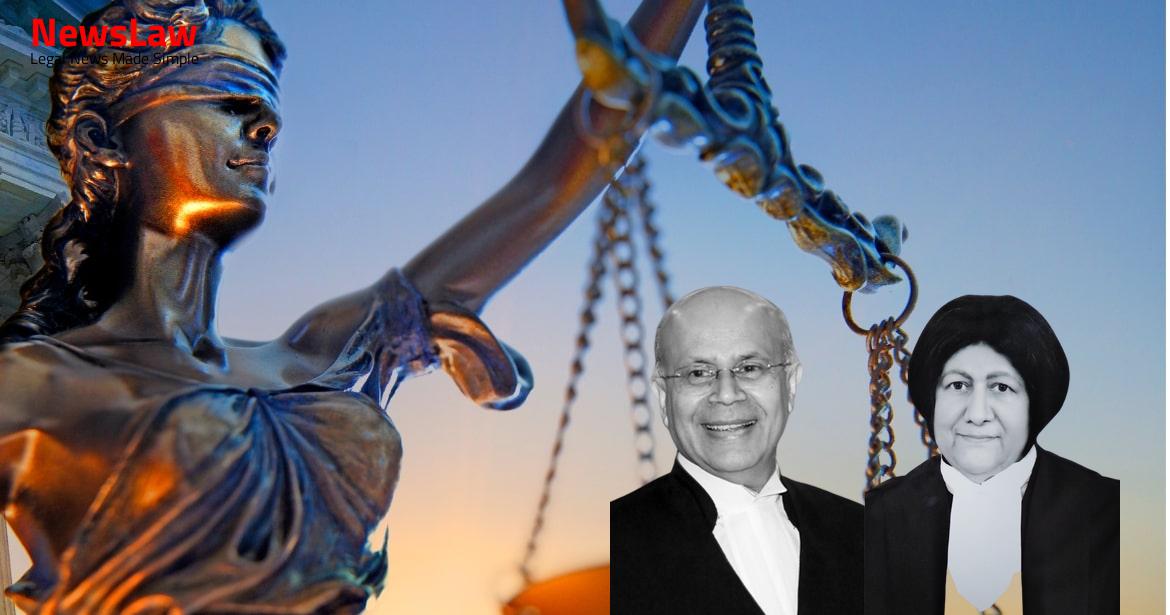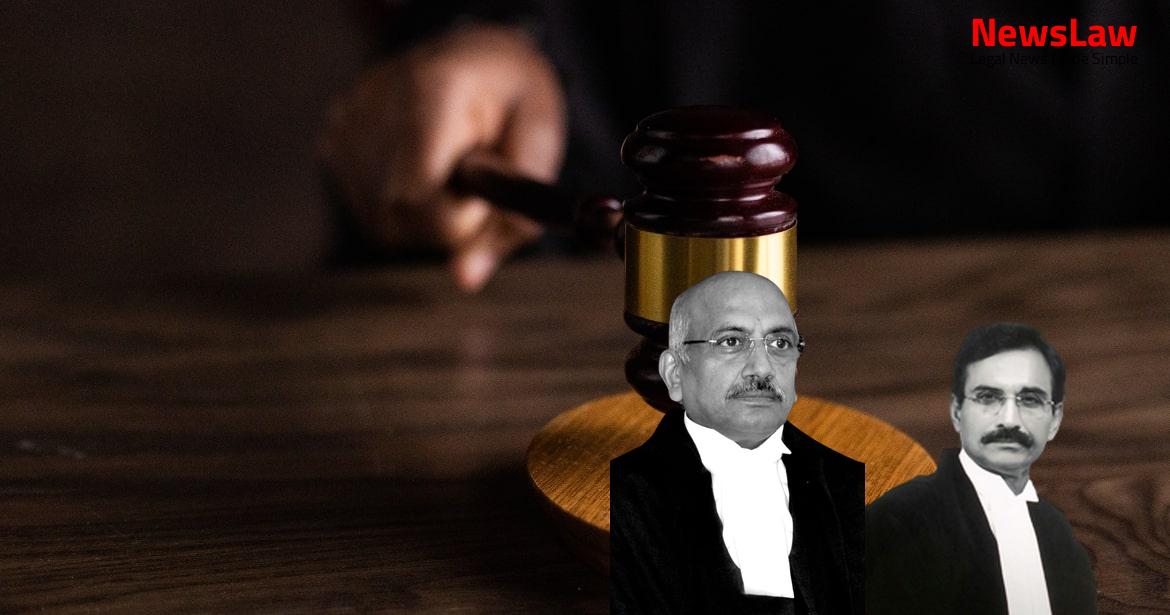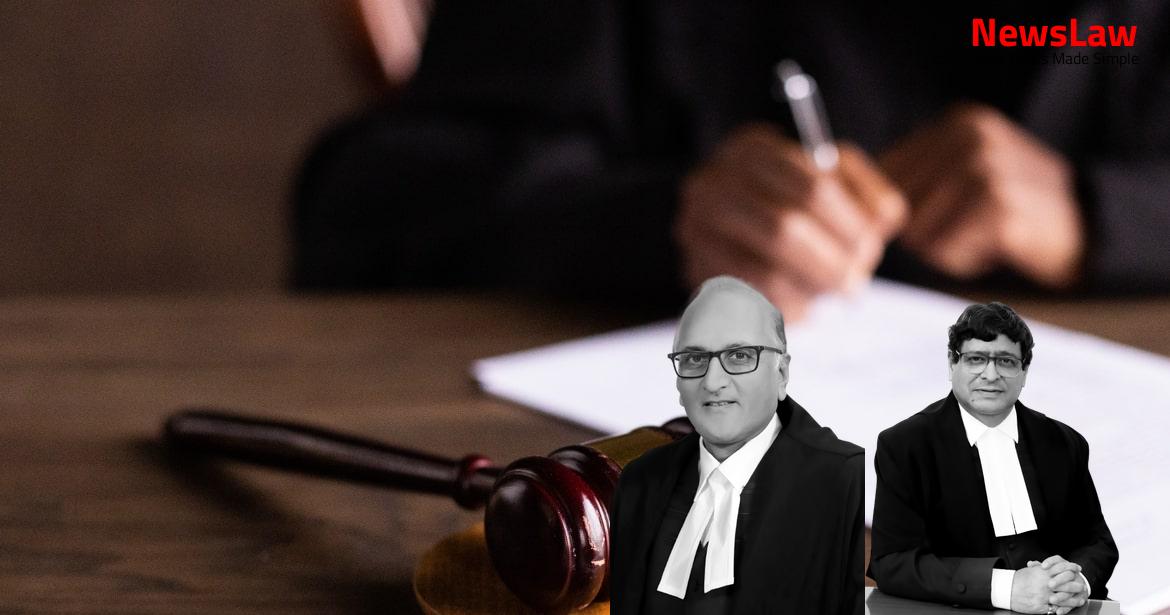Explore the court’s in-depth examination of fraud allegations in arbitration proceedings, shedding light on the complexity of determining the appropriateness of arbitration versus court resolution. The analysis focuses on the legal intricacies surrounding serious fraud accusations, emphasizing the need for meticulous inquiry before deciding on arbitration. Join us in uncovering how the court navigates allegations of fraud to ensure fair and just dispute resolution. #LegalAnalysis #FraudAllegations #ArbitrationProceedings
Facts
- On 17.05.2012, the Appellants’ challenge to the appointment of the Emergency Arbitrator was considered by the SIAC and rejected.
- The Appellants filed their response to the notices of arbitration on 25.05.2012.
- HSBC impugns the interlocutory judgment and order passed in the appeal under section 9 of the Arbitration and Conciliation Act, 1996 dated 31.07.2014.
- HSBC grew suspicious about the Avitel Group’s business of digitising films in early April 2012.
- Mr. Thio Shen Yi, SC, was appointed as an Emergency Arbitrator by the SIAC on 14.05.2012.
- The jurisdiction of the three-member Arbitral Tribunal set up under the SIAC was challenged by the Appellants.
- The Arbitral Tribunal decided that jurisdiction would be a preliminary issue on 25.09.2012.
- The costs and expenses of the arbitration shall be borne equally by each Party, and each Party shall pay its own fees and charges.
- HSBC filed an Arbitration Petition seeking directions to call upon the Appellants to deposit a security amount to the extent of HSBC’s claim in the arbitration proceedings under the SSA and the SHA.
- An interim order was passed directing Corporation Bank to allow the Appellants to withdraw a sum of INR 1 crore from their account but to keep the account frozen until further orders.
- A criminal complaint was filed by HSBC against the Appellants alleging offences under the Indian Penal Code with the EOW, resulting in an FIR being registered.
- The High Court found no estoppel in filing a criminal complaint and stated that the disputes between the parties were primarily related to ‘fraud’ and ‘misrepresentation’ under the Contract Act.
- HSBC filed a protest petition seeking rejection of the closure report, which was dismissed by the Magistrate.
- The Arbitral Tribunal passed a final partial award on jurisdiction dismissing the challenge and stating that allegations of fraud and complex factual issues are arbitrable under Singapore law.
- The Appellants were directed to deposit any shortfall in their account to maintain a balance of USD 60 million as per the order by the learned Single Judge.
- An appeal against the learned Single Judge’s order was disposed of by the Division Bench, affirming the distinction between ‘suitability’ and ‘arbitrability’ of disputes.
- A Foreign Final Award by the Arbitral Tribunal found that the Respondents made representations to induce HSBC’s investment in the Avitel Group.
Also Read: Legal Analysis on Physical Ability in Rape Case
Issue
- Whether the Appellants breached the Share Subscription Agreement by failing to issue shares to HSBC as agreed
- Whether HSBC’s investment of USD 60 million entitled them to acquire 7.8% of Avitel India’s paid-up capital
Also Read: Legal Analysis on Admissions and Document Consideration in Insolvency Case
Arguments
- The petitioner, Mr. Rohatgi, argued that the Foreign Final Award in question was unanimous and consisted of two other arbitrators.
- He relied on the N. Radhakrishnan judgment and argued that it has not been legislatively overruled, thus retaining its precedential value.
- He mentioned that a Single Judge judgment of the Court under section 11 of the 1996 Act does not have precedential value.
- Mr. Rohatgi highlighted the bias of Mr. Christopher Lau, SC, the Chairman of the Arbitral Tribunal in the Singapore proceedings.
- He raised the argument that the award being insufficiently stamped could not be considered, questioning the basis for the interim orders passed by the Division Bench of the High Court.
- Mr. Rohatgi referred to the 246 Law Commission Report recommending a change in Section 16(7) to eliminate the N. Radhakrishnan ratio.
- He argued that serious questions of fraud, as raised in the present proceedings, would render the dispute inarbitrable based on N. Radhakrishnan.
- Mr. Rohatgi cited the House of Lords’ judgment in La Pintada to support his arguments.
- He emphasized that the judgment in N. Radhakrishnan does not imply that a mere allegation of fraud is sufficient to avoid arbitration.
- He criticized the use of the N. Radhakrishnan judgment as a tactic to dodge arbitration proceedings based on fraud allegations.
- Mr. Rohatgi cautioned against using N. Radhakrishnan as a binding precedent due to the advancements in the law since its decision.
- He argued that serious questions of fraud should be the threshold for refusing arbitration, and Indian law should prevail in foreign award enforcement.
- Mr. Rohatgi pointed out that the Single Judge order and Division Bench judgment were erroneous in relying on Swiss Timing, rendering the decision per incuriam.
- He stressed that criminal allegations or statutory violations do not diminish the Arbitral Tribunal’s jurisdiction over civil or contractual disputes.
- Mr. Rohatgi noted that N. Radhakrishnan has been inadequately utilized by parties attempting to avoid arbitration by alleging fraud.
- He highlighted the necessity for establishing a prima facie case under the 1996 Act concerning fraud accusations in arbitration proceedings.
- Mr. Rohatgi mentioned that arguments regarding Mr. Christopher Lau SC’s bias should be addressed in the pending section 48 proceedings.
- He criticized the vagueness of the term ‘allegations of fraud, corruption, etc.’ in the Law Commission Report.
- Mr. Rohatgi emphasized the importance of scrutinizing materials to determine if fraud allegations are genuine or mere pretexts to avoid arbitration.
- Stamping aspect of the Foreign Final Award was not discussed in detail as it was not properly pleaded.
- There will be no awarding of the difference between market value of the shares and USD 60 million as the shares are back with Avitel India.
- The main question in the section 9 proceedings is the strength of HSBC’s case in the enforcement proceedings under section 48 before the Bombay High Court.
- Mr. Salve supported the Single Judge’s order and criticized the Division Bench’s reduction of the amount without proper reasoning.
- The shares held by HSBC were canceled, leading to their reversion to Avitel India.
- Serious allegations of fraud were not present; Appellant 1 was accused of misrepresenting by inducing higher equipment purchase prices.
Also Read: Analysis of Transfer of Winding Up Proceedings to NCLT
Analysis
- Section 20 of the 1940 Act outlines the procedure for filing an arbitration agreement in court in case of fraud or misrepresentation.
- The arbitration tribunal under the 1940 Act consists of three arbitrators, with each party nominating one arbitrator and the two appointed arbitrators nominating the presiding arbitrator.
- If a party fails to nominate an arbitrator within the specified time frame, the appointment may be made by the SIAC council in accordance with the rules.
- Consent to an agreement is considered voidable if caused by fraud, and the affected party can choose to have the contract voided or insist on its performance.
- The section defines various acts constituting fraud, including active concealment of a fact, false promises, and other deceptive acts.
- Silence regarding facts that could impact a contract is not fraud unless there is a duty to disclose or the silence is equivalent to speech.
- The Contract Act states that agreements are contracts if made with free consent, lawful consideration, and object, unless expressly declared void.
- Consent is considered free when not influenced by fraud as defined by the law.
- Arbitration agreements must be filed in court if legal proceedings have commenced on the subject matter of the agreement, as per the 1940 Act.
- The 1940 Act allows ongoing arbitral proceedings to become invalid if legal proceedings have commenced on the entire subject matter among all parties.
- The waiver of rights to court intervention is permitted in arbitration agreements, except for challenges related to jurisdiction or serious procedural irregularities.
- Parties can seek conservatory or interim relief from courts, and arbitration awards are final and binding under the Contract Act.
- The clause in question was not intended to apply to all questions, even those involving moral dishonesty or misconduct.
- The presence of a criminal case registered against the appellants does not preclude arbitration.
- Allegations of fraud alone may not nullify the arbitration agreement between parties.
- A civil court’s findings should not prejudice the defendants in criminal proceedings.
- Judgments in Afcons and Booz Allen must be read considering the possibility of both civil and criminal proceedings.
- Serious allegations of fraud are relevant when they go to the validity of the entire contract or arbitration clause.
- The court’s focus in arbitration disputes should be on whether the dispute is arbitrable rather than jurisdictional issues.
- Allegations of fraud warrant meticulous inquiry before deciding on arbitration.
- Certain disputes, like those involving trust deeds, may not be arbitrable and are better suited for court resolution.
- The High Court was not justified in staying civil suit proceedings pending a criminal case.
- The Arbitration Tribunal was empowered to make final and binding decisions with interest.
- The court must consider the substantive law in India regarding arbitrability when fraud allegations arise in arbitration.
- The 1940 Act and 1996 Act reflect different approaches to arbitration and judicial intervention.
- Allegations of fraud should be carefully analyzed to determine if they are sufficient to warrant court intervention instead of arbitration.
- The Seriousness and complexity of fraud allegations determine the appropriateness of arbitration versus court resolution.
- The Court added a category of non-arbitrable cases involving trust deeds and the Trusts Act.
- The Foreign Final Award against the appellants was upheld by the Bombay High Court and the appeal was dismissed.
- Challenges to the Foreign Final Award were unsuccessful in both section 34 and section 37 proceedings.
- The appellant’s contention has been dismissed.
- The aim is to restore the plaintiff to the position if no false representation had been made.
- The practical difference between the two measures of damages in cases of deceit was explained.
- The judgment in previous civil proceedings can be relevant based on specific provisions of the Evidence Act.
- Cases involving serious allegations of fraud, fabrication, forgery, impersonation, etc., may not be suitable for ADR process.
- Representative suits under Order 1 Rule 8 CPC may not be easily compromised due to public interest or numerous interested parties.
- The court has the discretion to decide the extent to which judgments from previous cases are binding or conclusive.
- The civil court’s findings may take precedence over those of a criminal court in civil or criminal proceedings.
- The court may refuse to order arbitration in cases of serious allegations of fraud requiring trial in open court.
- A suit for enforcement of a mortgage is considered to be an action in rem and therefore not arbitrable.
- Judgments from both civil and criminal proceedings may not be binding across each other.
- The Law Commission’s proposed amendments aim to make issues of fraud expressly arbitrable.
- The court must discourage litigative strategies to avoid arbitration once an agreement to arbitrate has been made.
- The rules for assessing damages in cases of fraudulent misrepresentation were elaborated.
- The distinction between fraud in obtaining a contract and fraud in the performance of a contract was highlighted.
- The judgement states that the right date is only prima facie correct, but this may not always be the case.
Decision
- The seat of arbitration shall be Singapore.
- The language of the arbitration proceedings shall be English.
- The appointment of arbitrators shall be made by the SIAC council in accordance with the Rules, upon request of a party. It may be appropriate to select a later date.
- The parties undertake to carry out the award without delay.
Case Title: AVITEL POST STUDIOZ LIMITED AND ORS. Vs. HSBC PI HOLDING (MAURITIUS) LIMITED (2020 INSC 498)
Case Number: C.A. No.-005145-005145 / 2016



